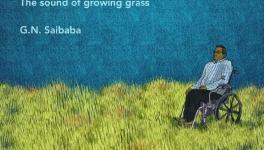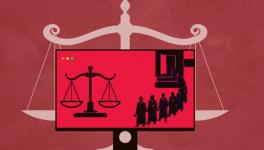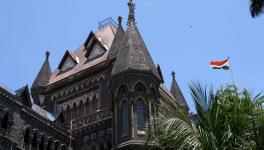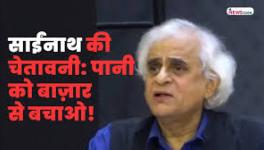Being seen in the Company of Activist of a Banned Outfit not a Ground to Attract UAPA: J&K High Court
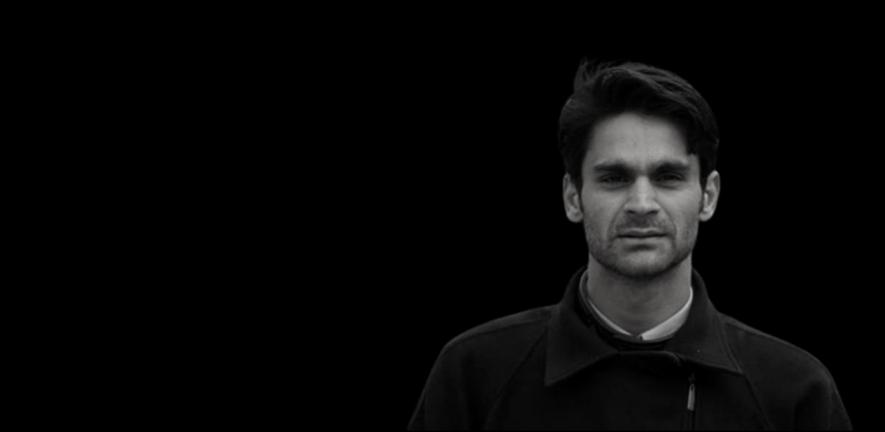
ON May 25, a division bench of the Jammu & Kashmir and Ladakh High Court set free Jammu and Kashmir Peoples Democratic Party (‘PDP’) leader Waheed-ur-Rehman Parra on bail in a case of terrorism under the Unlawful Activities (Prevention) Act, 1967 (‘UAPA’). The court found the evidence gathered by the prosecution was too sketchy to be believed to be prima facie true, that too, with a view to denying bail to Parra. Parra has been languishing in jail since November 25, 2020.
Section 43D(5) of the UAPA provides that a person accused of an offence punishable under Chapters IV and VI of the UAPA Act shall not be granted bail unless the Public Prosecutor has been given an opportunity of being heard, and the court, on perusal of the case diary or the report made under Section 173 of the Criminal Procedure Code is of the opinion that there are reasonable grounds for believing that the accusation against such person is, prima facie, not true
A division bench of Justices Sanjeev Kumar and Vinod Chatterji Koul was ruling on an appeal filed by Parra under Section 21 of the National Investigation Agency (‘NIA’) Act, 2008 against the order of the Special Judge designated under the NIA Act, Srinagar, rejecting the bail application filed by him. Parra was booked by the Jammu and Kashmir police under Sections 13 (punishment for unlawful activities), 17 (punishment for raising funds for terrorist act), 18 (punishment for conspiracy, etc.), 38 (offence relating to membership of a terrorist organisation), 39 (offence relating to support given to a terrorist organisation) and 40 (offence of raising fund for a terrorist organisation) of the UAPA, read with Sections 120B (punishment of criminal conspiracy), 121 (waging, or attempting to wage war, or abetting waging of war, against the Government of India), 121A (conspiracy to wage, attempt to wage or abet the waging of war against the Government of India) and 124A (sedition) of the Indian Penal Code (‘IPC’).
Also read: Give redacted copies of statements of protected witnesses to accused under UAPA: SC to J&K Police
Initially, Parra was arrested in First Information Report [FIR] No. 05 of 2020, which was registered on January 11, 2020 against one Syed Naveed Mushtaq and others, at the Qazigund police station under Sections 18, 19 (punishment for harbouring, etc.), 20 (punishment for being member of terrorist gang or organisation), 38 and 39 of UAPA, read with Sections 7/25 (punishment for acquisition or possession, or of manufacture or sale of prohibited arms or prohibited ammunition) of the Arms Act, 1959, and Sections 3 (punishment for causing explosion likely to endanger life or property) and 4 (punishment for attempt to cause explosion, or for making or keeping explosive with intent to endanger life or property) of the Explosive Substances Act, 1904. The investigation of this FIR was later taken over by the NIA. As soon as Parra got bail in FIR No. 5 of 2020, he was arrested in a subsequent FIR No.31 of 2020 on the same set of allegations, which were the subject matter of the initial FIR.
The High Court, which was dealing with bail in FIR No. 31 of 2020, granted bail to Parra, holding that: “While considering the bail applications under UAPA Act, particularly in relation to a person accused of an offence punishable under Chapters IV and VI of UAPA Act, the Courts, while keeping in mind the rigours of sub-Section (5) of Section 43-D of the UAPA Act, should not forget that there is presumption of innocence in favour of the accused till he is proved guilty. This presumption is available to a person accused of any offence under UAPA Act except the offence under Section 15 of said Act. Section 43-E of UAPA Act provides for reverse burden in relation to the offence under Section 15 of the said Act”.
The bench of Justices Kumar and Koul took note of the fact that Parra was not charged with Section 15 of UAPA and, therefore, the reverse burden provision contained in Section 43E of UAPA was not attracted.
“When we view the instant case in the light of settled legal position, we find that the trial Court has not exercised the discretion in consonance with the settled legal principles on grant or refusal of the bail. As is rightly contended by learned counsel appearing for the appellant that the appellant is charged under Section 18 of UAPA Act read with Sections 120-B and 121-A IPC, but no material or evidence is brought on record by the prosecution to sustain the charge”, the bench ruled.
“From reading of the final report, it is abundantly clear that the prosecution is relying upon the evidence collected during the investigation which only points to the appellant having been seen in the company of one Yousaf Gadoora, an alleged over ground worker of a proscribed terrorist organization. Prima facie, we could not find any allegation in the final report which shows the association of the appellant with any terrorist organization, that too, with an intention to further its activities. Rather, the appellant is shown to be a member of a recognized political party i.e. Peoples Democratic Party which has remained in power in the erstwhile State of Jammu and Kashmir. There is nothing believable on record to demonstrate that the appellant has supported any terrorist organization with an intention to further activities of such organization. Simply because the appellant has been seen on some occasions with a person with doubtful credentials cannot itself lead to the conclusion that the appellant is either a member of a terrorist organization or is lending support to such organization with an intention to further its activities”, the bench said of the allegations against Parra.
Besides, it held that the mere fact of the accused having been seen in the company of a member of a terrorist organization without doing anything more is not enough to attract the applicability of UAPA.
“Similarly, insofar as Section 17 of UAPA Act is concerned, it provides punishment for raising funds for the terrorist act. From reading of the final report, one would find that this charge owes its origin to the allegation of attempt made by the appellant to arrange five AK-47 rifles on payment of Rs.1 lac for each. The allegation further states that the aforesaid deal though contemplated, did not materialize and was subsequently abandoned…”, the bench held. It added that the allegation with regard to the plan made by Parra to procure five AK- 47 rifles may amount to making preparation for committing the offence, but cannot be tantamount to commission of offence under section 17 of UAPA.
“So far as Section 13 of UAPA is concerned which the appellant is also charged with, it does not fall in Chapters IV or VI of UAPA Act and, therefore, saved from the rigours of section 43-D of UAPA Act in the matter of grant of bail to the person accused of such offence”, the court said.
It thus concluded that “Viewed from any angle, the evidence assembled by the Investigating Agency and relied upon by the prosecution to prosecute the appellant even if accepted as it is without any denial or rebuttal by the appellant, is not such on the basis of which the Court can formulate an opinion that the allegations proved during the investigation are prima facie true.”
Regarding the sedition charge against Parra, the bench said it was governed by the Supreme Court’s recent decision in S.G. Vombatkere versus Union of India wherein it has directed that all the pending trials, appeals and proceedings with respect to the charge framed under Section 124A of IPC shall be kept in abeyance.
Click here to view the Jammu & Kashmir and Ladakh High Court’s full judgment.
Get the latest reports & analysis with people's perspective on Protests, movements & deep analytical videos, discussions of the current affairs in your Telegram app. Subscribe to NewsClick's Telegram channel & get Real-Time updates on stories, as they get published on our website.










